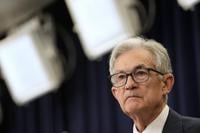şĂÉ«tv shoppers opened up their wallets a touch more in October, helping retail sales rise 0.7 per cent to $66.9 billion that month, but Statistics Canada and analysts are warning such numbers won't keep climbing.
The federal data agency said Thursday that the pickup in overall retail sales was driven largely by higher sales at new car dealers. Sales at motor vehicle and parts dealers gained 1.1 per cent in October, helped higher by a 1.3 per cent increase at new car dealers and a two per cent rise at other motor vehicle dealers.
Statistics Canada, which tracks nine subsectors, said sales were up in seven of those areas, including food and beverage, furniture, electronics and appliances, clothing and sporting goods.
But the agency added its early estimate for November suggested sales were relatively unchanged last month and it cautioned the figure would be revised.
Shelly Kaushik, an economist with BMO Capital Markets, described October's retail sales as "solid" because core retail sales — which exclude gas stations and fuel vendors and motor vehicle and parts dealers — were up 1.2 per cent.
"However, indicators of weakness for November suggest consumer spending could slow meaningfully in the rest of the fourth quarter," she wrote in a note to investors.
Andrew Grantham of CIBC Economics had a similar view, saying October's pickup in spending doesn't appear to have continued into November.
He anticipated last month's numbers will show flat sales and said beyond that, consumer spending will likely be hampered by further weakening in the şĂÉ«tv labour market.
His forecast was based on data Statistics Canada released separately on Thursday, showing the number of employees receiving pay and benefits from their employer in October decreased by 44,600 from September.
Such figures offer a glimpse into what consumers were dealing with heading into the holiday season, when retailers tend to see more activity as people buy gifts and other products for entertaining.
An online survey conducted by consulting firm KPMG between Oct. 20 and Nov. 2 found 83 per cent of the 1,507 şĂÉ«tvs it spoke with are being more cautious about what they spend money on this year compared with last year.
Seventy per cent of those surveyed said they don’t plan on spending as much on discretionary items — travel, apparel, electronics, entertainment, toys and restaurants — as they did in previous years, while 66 per cent indicated they plan to only spend on essential goods such as groceries, personal care products and prescriptions this year.
Maria Solovieva of TD Economics said, "şĂÉ«tv consumers have been in the festive spirit this holiday season, having broadened their spending across several categories," but she warned the pattern may not persist.
"While improved spending patterns during the holiday season has hit a high note, it’s uncertain if this harmonious rhythm will play on in the same key into the new year as spending is forecast to decelerate in the first half of 2024," she said in a note to analysts.
This report by şĂÉ«tvwas first published Dec. 21, 2023.








































